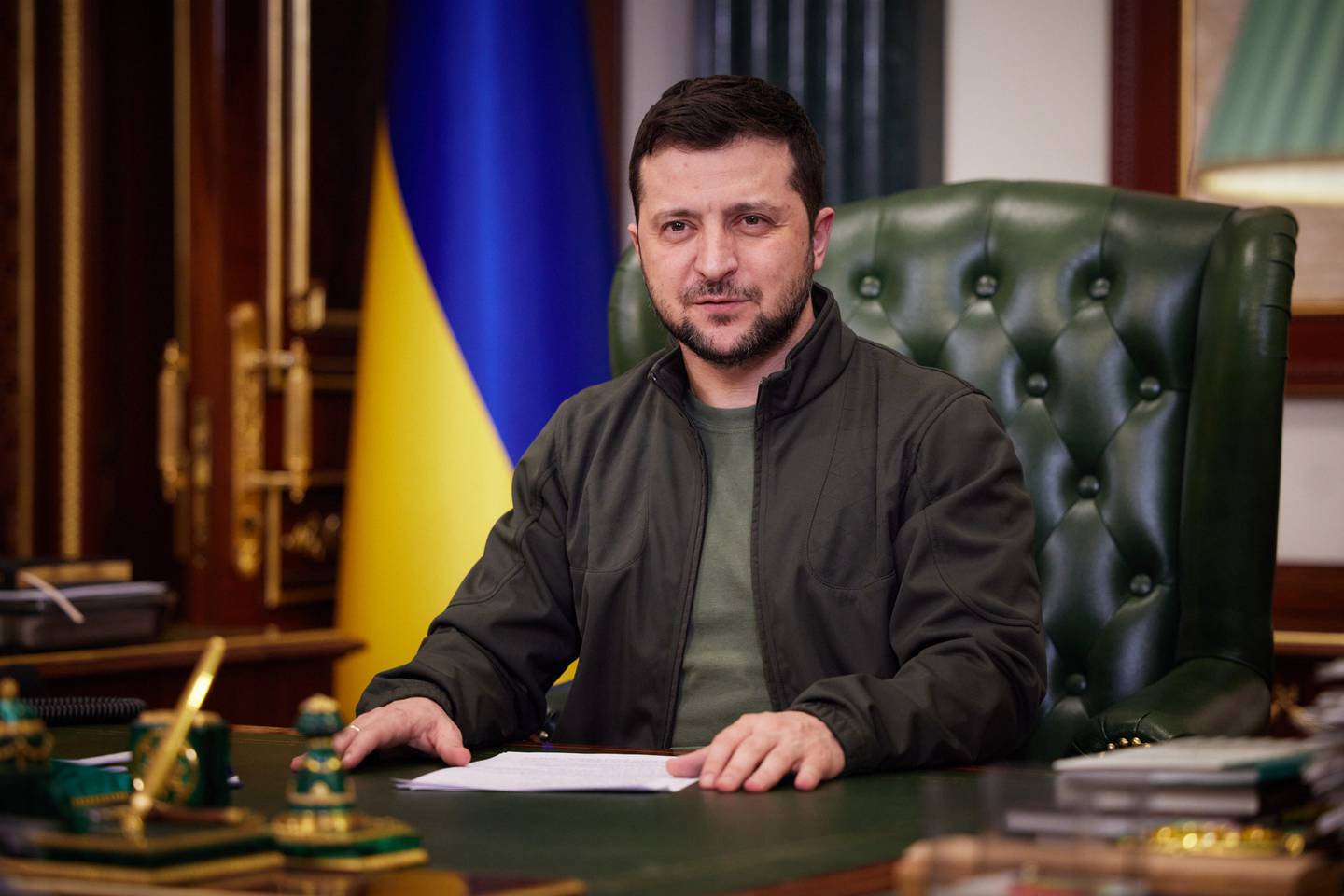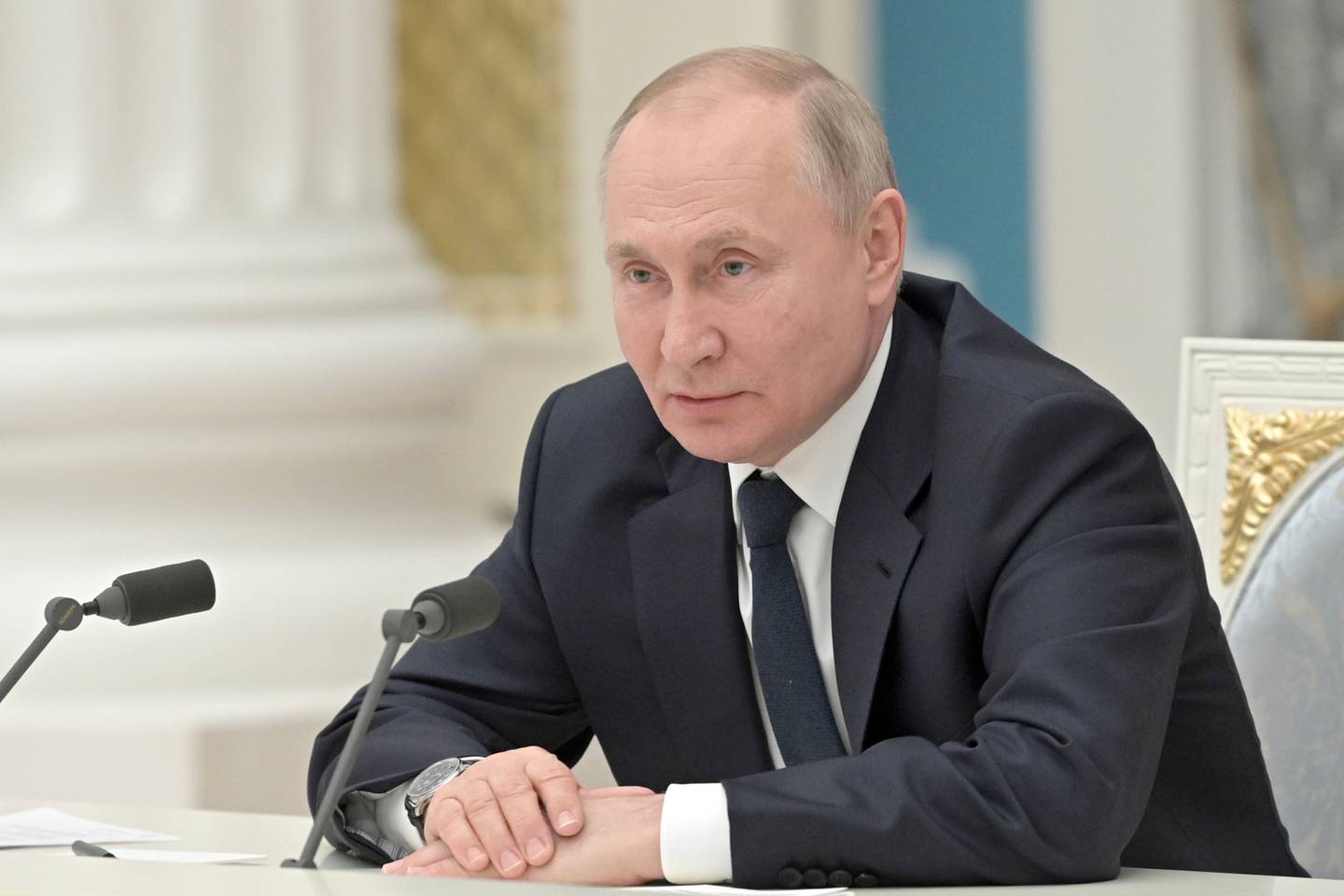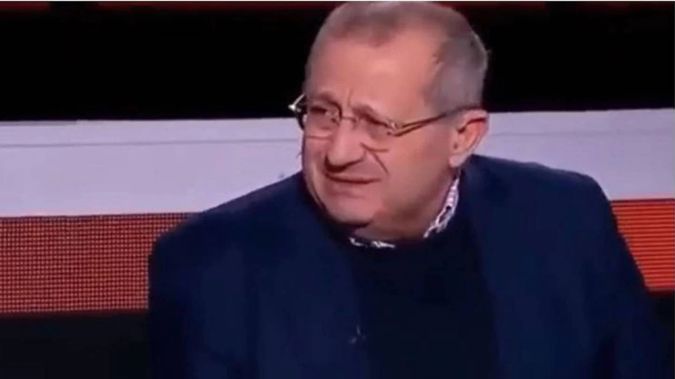Russian state television has broadcast an extraordinary rant about the state of the war in Ukraine, warning Vladimir Putin's regime faces "final and complete defeat".
Yakov Kedmi, an Israeli-Russian pundit and former diplomat, is usually a reliably pro-Kremlin voice. But in an appearance on the prime time show Tonight with Vladimir Soloviyev, he was remarkably negative about the situation in Ukraine.
Kedmi said Russia could not afford to compromise on the initial goal of its invasion, which was to take major Ukrainian cities, including the capital Kyiv, and overthrow the government.
In his view, anything less than that – including any potential peace deal – would count as a humiliating loss.
"Whatever treaty Russia may sign with the current Ukrainian regime will mean the defeat of Russia. Final and complete defeat," he said.

"In the eyes of the Russian people, in the eyes of the Russian army, in the eyes of the whole world. And then the support of India, China and the Arab world will evaporate.
"When Russia sent an ultimatum to the US, Russia also sent an ultimatum to itself. It has no right to lose.
"It means that Russia has no power to deal with anyone. With Ukraine? With Zelenskyy?
"This treaty may be the beginning of the end of the Russian state. Because if you failed with Ukraine, how do you threaten Nato? How do you threaten the United States? You could not deal with Zelenskyy, so what are you?
The victory Kedmi craves appears to be beyond Russia's reach.
According to Western intelligence, Putin expected Russian forces to blitz Ukraine and claim Kyiv within days. But Ukrainian resistance was far stronger than he anticipated, and as the invasion enters its second month, the capital still stands.
With the initial goal of removing Volodymyr Zelenskyy's government looking ever more unattainable, Russia has shifted its focus in recent days, and is now prioritising the so-called "liberation" of Ukraine's eastern regions.
Colonel-General Sergei Rudskoi, deputy head of the Russian general staff, claimed the "main objectives" of Russia's initial assault had been achieved and its forces could now "focus on the main efforts to achieve the main goal, liberation of Donbas".
The head of Ukraine's Defence Intelligence service, General Kyrylo Budanov, said Putin was attempting to split the country in two, in the same vein as North and South Korea.
"The occupiers will try to pull the occupied territories into a single quasi-state structure and pit it against independent Ukraine," said Gen Budanov.

His warning came as Leonid Pasechnik, head of the self-proclaimed Luhansk People's Republic, said a referendum on whether to join Russia could be held soon.
Zelenskyy, meanwhile, said Ukraine was seeking peace "without delay".
"A new round of negotiations is ahead," Zelenskyy said. "We are looking for peace. Really. Without delay.
READ MORE
- The Russo-Ukrainian war’s lessons for the Australian Army
- Helen Clark on what needs to be done to stop Russia's war on Ukraine - and why May 9 could be an important date
- Ukraine strike on Russian territory reported as talks resume
- What impact would a Russian debt default have?
"Our priorities in the negotiations are known. Ukraine's sovereignty and territorial integrity are beyond doubt. Effective security guarantees for our state are mandatory. Our goal is obvious: peace, and the restoration of normal life in our native state as soon as possible."
In his nightly address, Zelenskyy mocked the Russian government for seeking to suppress an interview he gave to independent Russian journalists hours earlier.
It was in that interview that the President suggested Ukraine was open to adopting a neutral status as a concession to end the war, a move that would involve abandoning its ambition to join the Nato alliance.
Russia has forbidden the media from reporting on or publishing the interview, though multiple outlets defied the government's orders.
"We see again and again how far we are from the Russian Federation. Imagine, they were frightened there in Moscow because of my interview to Russian journalists, to those of them who can afford to tell the truth," said Zelenskyy.
"When journalists were preparing to publish our interview, the Russian censorship agency came out with a threat. They demanded not to publish the conversation. It would be ridiculous if it weren't so tragic.
"They destroyed freedom of speech in their state. They are trying to destroy the neighbouring state. They portray themselves as global players, yet they themselves are afraid of a relatively short conversation with several journalists.
"Well, if that's their reaction, then we are doing everything right. They are nervous. Apparently, they have seen that their citizens have more and more questions about the state of affairs in their country."
Kedmi's vocal fears on state television that the end of the Russian state could be near came as the United States denied speculation that it had adopted a policy of "regime change" towards Russia.
That speculation was sparked by an improvised line from President Joe Biden, who ended a speech in Poland by saying: "For God's sake, this man cannot remain in power."
He was referring to Putin. The White House and State Department scrambled to walk back his words, lest they escalate the situation.
"The President's point was that Putin cannot be allowed to exercise power over his neighbours or the region. He was not discussing Putin's power in Russia, or regime change," a White House official insisted.
"I think the President, the White House, made the point last night that, quite simply, President Putin cannot be empowered to wage war or engage in aggression against Ukraine or anyone else," added Secretary of State Antony Blinken.
"As you have heard us say repeatedly, we do not have a strategy of regime change in Russia, or anywhere else for that matter.
"In this case, as in any case, it's up to the people of the country in question. It is up to the Russian people."





